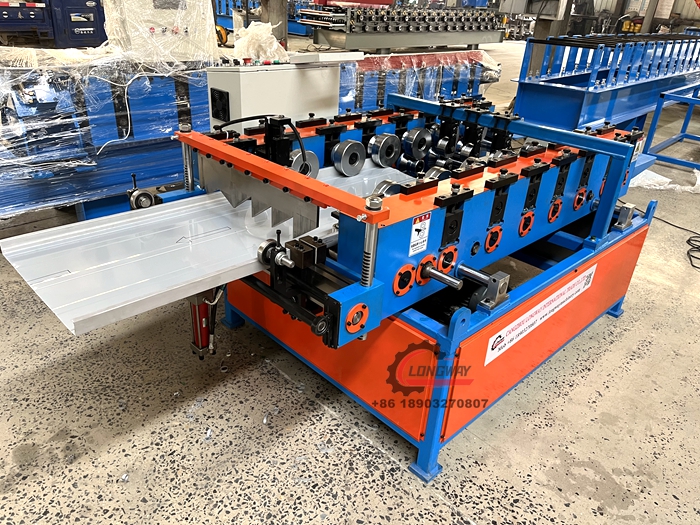C Shape Roll Forming Machine for Efficient Metal Profile Production in China
The Functionality and Importance of C-Shape Roll Forming Machines in Modern Manufacturing
In the realm of modern manufacturing, the C-shape roll forming machine has carved a significant niche for itself. This specialized equipment is designed to produce C-shaped profiles, which are vital components in various industries, including construction, automotive, and general fabrication. Understanding the capabilities and applications of C-shape roll forming machines reveals their importance in improving efficiency and reducing production costs.
A C-shape roll forming machine operates through a continuous process that involves feeding a metal strip, usually made from steel or aluminum, into a series of rollers. These rollers are precisely engineered to gradually shape the metal into a C-profile through a series of bending operations. The process is not only efficient but also ensures high accuracy and uniformity in the final product.
The Functionality and Importance of C-Shape Roll Forming Machines in Modern Manufacturing
In addition to efficiency, C-shape roll forming offers considerable material savings. Traditional manufacturing methods often produce significant waste during the cutting and shaping processes. However, roll forming is a continuous process that can optimize material usage, resulting in less scrap and lower costs, which is a significant consideration in today’s economy where sustainability plays a crucial role.
china c shape roll forming machine

Moreover, the versatility of C-shape roll forming machines cannot be overstated. They can be used to create various gauges and sizes of C-profiles, making them suitable for a wide range of applications. For example, C-shaped beams are commonly used in structural applications, providing critical support in buildings and bridges. Additionally, they are pivotal in the automotive industry, where they are used in the creation of frames and body components.
Investment in a C-shape roll forming machine also translates to enhanced production speed. Unlike traditional fabrication methods, which may involve multiple steps and processes, the roll forming technique allows for the rapid transformation of flat metal sheets into finished C-shaped components. This speed is an essential competitive edge for manufacturers looking to meet the demands of fast-paced markets.
Furthermore, advanced C-shape roll forming machines are increasingly equipped with computerized controls and automation. This technological integration enables manufacturers to program specific profiles and shapes with ease, allowing for quick adjustments and modifications. As a result, businesses can respond swiftly to market changes, tailor products to meet customer specifications, and produce prototypes efficiently.
In summary, C-shape roll forming machines are a cornerstone of modern manufacturing, combining precision, efficiency, and versatility. Their role in producing essential components across various industries underscores their significance in enhancing production capabilities while minimizing costs. As manufacturing technology evolves, the continued advancement of roll forming machinery promises even greater efficiencies and innovations, ensuring that C-shape roll forming machines remain a key asset in the manufacturing sector for years to come.
-
Roof Panel Machines: Buying Guide, Types, and PricingNewsJul.04, 2025
-
Purlin Machines: Types, Features, and Pricing GuideNewsJul.04, 2025
-
Metal Embossing Machines: Types, Applications, and Buying GuideNewsJul.04, 2025
-
Gutter Machines: Features, Types, and Cost BreakdownNewsJul.04, 2025
-
Cut to Length Line: Overview, Equipment, and Buying GuideNewsJul.04, 2025
-
Auto Stacker: Features, Applications, and Cost BreakdownNewsJul.04, 2025
-
Top Drywall Profile Machine Models for SaleNewsJun.05, 2025








